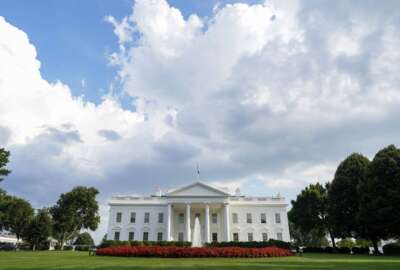The Federal Headlines is a daily compilation of the stories you hear discussed on Federal Drive with Tom Temin.
- President Donald Trump authorized $19.5 billion in funding for the National Aeronautics and Space Administration, but also gave the agency a tall order. Within the legislation, it directs NASA to develop a human exploration roadmap with the long-term goal of human missions near or on the surface of Mars in the 2030s. NASA must complete the roadmap by December 2017. The authorization also provides health care for life for retired astronauts. This is to also help NASA to look at the long-term effects space travel has on the human body. (Associated Press)
- A ranking Defense Department official said a new round of base realignments and closures (BRAC) is needed to help streamline the agency. DoD acting Deputy Chief Management Officer David Tillotson told a House oversight committee that another BRAC is needed, but it can’t be the only solution. Tillotson defended DoD’s response to a 2015 audit that found $125 billion in potential savings. (Federal News Radio)
- The nude photo sharing scandal that rocked the Marine Corps may be even worse than everyone thought. Maj. Gen. Jason Evans, Army director of personnel management, told Congress there is a multi-service investigation into Tumblr blogs that may be sharing explicit photos of service members from multiple military branches. (Federal News Radio)
- Second-in-command National Security Agency said the agency has laid the groundwork for public-private sharing of cyber threat information. NSA’s outgoing Deputy Director Richard Ledgett told an Aspen Institute roundtable he was collecting industry feedback on government’s rollout of the 2-year-old Cybersecurity Information Sharing Act. Paul Abbate, the FBI’s executive assistant director, said his agency is moving toward a whole-of-government approach to cybersecurity. (Federal News Radio)
- Congress wants to give the Electronic Crimes Task Force at DHS some new customers. The Secret Service could be getting an expanded cyber role. A new bill from Rep. John Ratcliffe (R-Texas) would establish a new computer forensics institute in the service. The new organization would be charged with disseminating homeland security information around cyber and electronic crimes to state and local law enforcement agencies. The information would include cyber crime investigation and prevention threat data. The institute also would educate, train and equip law enforcement officers, prosecutors and judges to analyze digital evidence and conduct forensic examinations on computer and mobile devices. (Rep. John Ratcliffe)
- More key roles for the Homeland Security Department are getting filled. President Donald Trump appointed Benjamin Cassidy as assistant secretary for legislative affairs for DHS. He previously served as special counsel to DHS’ secretary in the department’s Office of Legislative Affairs. Before that, he was a senior executive for Boeing. Also, Jonathan Hoffman is Homeland Security’s new assistant secretary for public affairs. Most recently Hoffman was the South Carolina executive director for the national security non-profit Americans for Peace, Prosperity, and Security. Outside DHS, Trump tapped Ryan Newman to serve as general counsel for the Department of the Army. (The White House)
- In a response to a scathing inspector general report, the Veterans Affairs Department said it was resolved the challenges with the Veterans Crisis Line. In an agency statement, VA said the rate of rolling over calls to back up call centers is less than 1 percent now, mostly thanks to the opening of its now Atlanta call center. (Department of Veterans Affairs)
- The Veterans Affairs Department said there should be some limitations to the length and type of employees using official time. It’s supporting new legislation to prohibit some doctors from doing any union business during work hours. The VETS Protection Act would also limit VA employees involved in direct patient care from spending more than a quarter of their hours on official time. A VA nurse who spent 100 percent of her time doing union business, says her work is necessary to help VA better implement its policies at the front lines. (House Veterans Affairs Committee)
- Another familiar accountability bill is back on the table. Rep. Ted Yoho (R-Fla.) reintroduced the Federal Employee Accountability Act. It would let agency heads remove or demote employees for poor performance. Employees can appeal to Merit Systems Protection Board administrative judge. Judges would have 45 days to decide. The bill would also let agency heads reduce an employee’s pay. (Congress.gov)
Copyright
© 2024 Federal News Network. All rights reserved. This website is not intended for users located within the European Economic Area.





